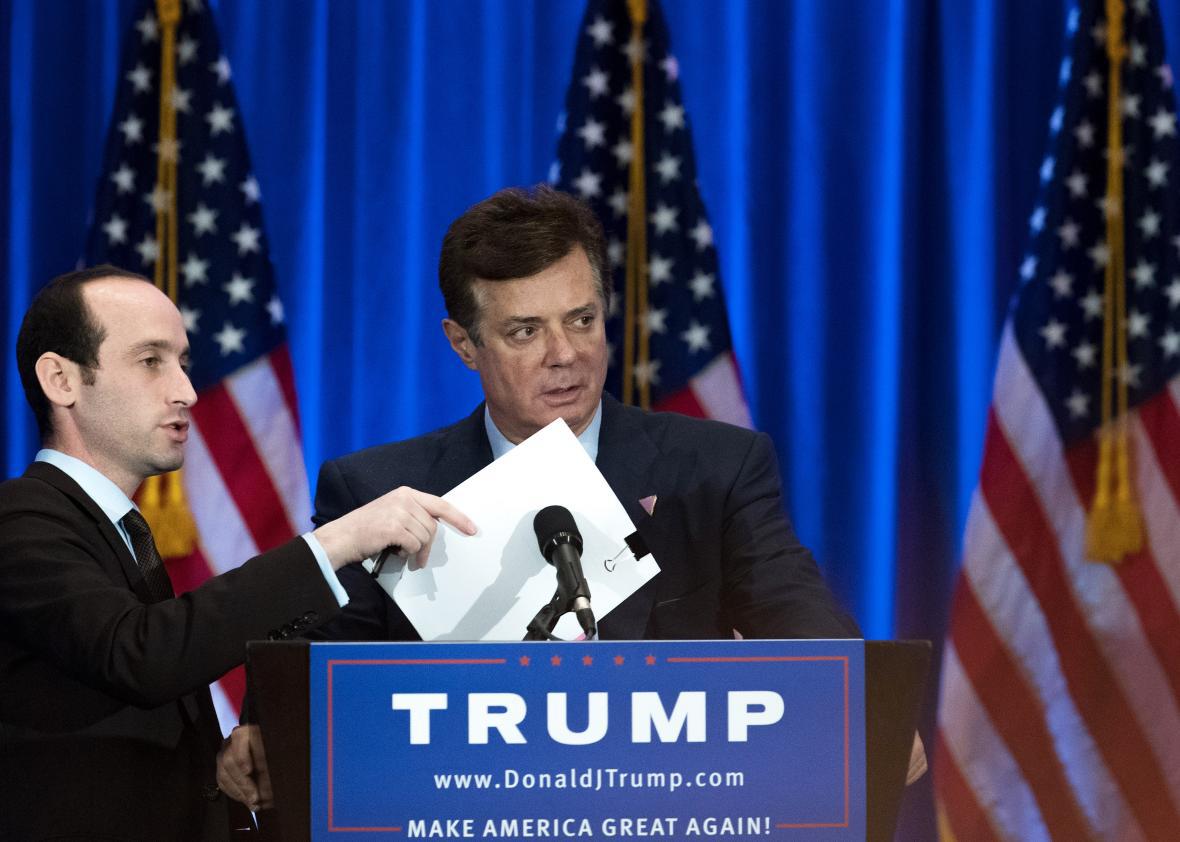The resignation of Paul Manafort Friday morning, just six months after he signed on to Trump’s campaign and two days after the ascension of Breitbart executive Steve Bannon, proves the very thing about Donald Trump we were loath to admit.
At a time when Trump is sinking in the polls and seems unable to right the ship, it’s easier than ever, if you are not a Trump supporter, to indulge in a measure of relief. He’s probably not going to be president. But at the same time, the lack of a Trump pivot, his astounding ability to continue to “be himself” even at the cost of his base, means another, complementary truth must be acknowledged: Donald Trump is an incomparable figure, more untamable than even some of the worst people in the world.
These two realizations go hand in hand. Had Manafort, a dark mage of political image-making, been successful in reshaping the Trump campaign, we would have declared Trump a clown who got lucky in the primaries and smartly bent a knee to the party apparatus. But it seems the correct view now is that an unstoppably destructive force has, in the span of a year, laid waste not only to the brightest lights of the Republican Party, but to the party’s own best attempt to give him the very thing he’s ostensibly running for.
It’s impressive!
When Manafort first “volunteered” for the campaign, it was seen as an act of salvation, a professional hand coming on to replace the ramshackle operation run by a dinghy-full of people, one of them being the promptly ousted and now gleefully gloating Corey Lewandowski. Franklin Foer was one of the earliest to sound the alarm bells about Manafort’s evil genius here in Slate, with a frightening portrait of a man who had been a longtime GOP operative, who had crafted the 1984 “Morning in America” convention, and gone on to a lucrative career rehabilitating tyrants and taking money from Russian oligarchs.
This was the guy, it seemed, to really be afraid of. This was the guy who was going to take the wildly veering Trump canoe and rebuild it into a wave-chopping tanker of a presidency-winning machine. This, and the growing reports of connections between Manafort and pro-Russian interests, played into the illusion that Trump was a mindless Manchurian candidate of some kind, beholden if not directly to Putin, then to Manafort and his needs, or, opportunistically, to a white nationalist movement. In trying to imagine a convergence of networked interests, we underestimated Trump’s singularity.
How wrong we were. Paul Manafort was able to stage-manage Gerald Ford, Ronald Reagan, Bob Dole, Mobutu, Angolan guerrilla fighters, Lebanese arms dealers, and Viktor Yanukovych. But he wasn’t able to reform Donald J. Trump.
Through some alchemy of pathological striving, bitterness, narcissism, canniness, force of will, and starter funds, we have ended up with a presidential nominee who, we finally have to accept, is the furthest thing from a joke. Trump is a towering figure in American cultural—and now political—history. Paul Manafort is but a footnote.
You’ve won, Donald. Even if you don’t become president, you’ve won. There is nobody like you. There never has been. And with any luck—though luck rarely holds—there never will be.
